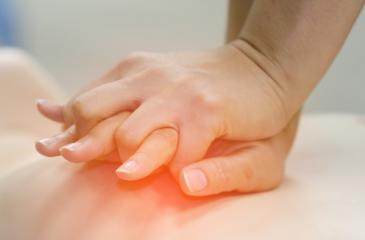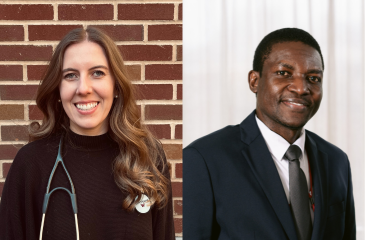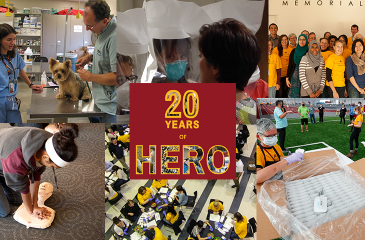When the COVID-19 pandemic hit, the staff at the University of Minnesota’s Center for Resuscitation Medicine quickly realized that CPR training came to a hard stop—and they knew they needed to find an alternative to the vital face-to-face trainings.
Sudden cardiac arrests do not stop during a pandemic and the statistics on COVID-19 and emergency department visits were alarming. According to the Centers for Disease Control and Prevention, emergency department visits declined 42% during the early days of the COVID-19 pandemic.
Through its partnership with the Office of Academic Clinical Affairs, the Center for Resuscitation Medicine is committed to advancing research, education and community engagement—and is a first of its kind center in the US dedicated to innovative research, world-class training and clinical leadership to improve outcomes for sudden cardiac arrest.
One of the Center for Resuscitation Medicine’s goals is to lead a coordinated response to the needs of sudden cardiac arrest patients in Minnesota and to become a model for cities across the United States.
“When our program was started in 2011, it was with a grant to collect data, determine goals and objectives to improve outcomes from sudden cardiac arrest,” said Program Manager Kim Harkins. “One area we decided to focus on was the relatively low bystander CPR rates we had in Minnesota compared to nationally. We set out to do this through outreach and also became engaged in the Minnesota Heart Safe Communities program.”
Meeting the need In the early months of the pandemic, Harkins and her colleagues developed an online, 30-minute CPR curriculum using the Zoom platform. In the 30-minute class, participants learn the basic techniques and importance of life-saving hands-only CPR.
Thanks to funding from the American Heart Association, supported by the Otto Bremer Trust, and from the Medtronic Foundation through its HeartRescue Project, the virtual training is free and available to all. Participants learn the skills and are able to practice their skills while following along with someone demonstrating CPR on Zoom video.
The training also includes a demonstration on how to use an automated external defibrillator (AED) in case participants are in a public place with an AED available. At the end of the course, participants are offered an option to receive a CPR Anytime kit—a small mannequin and video they can use to train family members or friends.
Safety during COVID-19 One barrier to a bystander doing CPR during a pandemic is the chance that they contract the virus. The virtual CPR training addresses this concern with providing bystander CPR for a family member or a stranger in a public place.
“With family members or someone you live with, it’s critical to go ahead and start the CPR compressions during a sudden cardiac arrest,” said Harkins. “You are not going to be any more exposed with a household member than you already are by doing CPR.”
In a public setting, you do want to take extra precautions. “Don’t take your mask off and don’t take their mask off,” said Harkins. “If they don’t have a mask, pull up their clothing to cover their mouth and nose. Call 911 and start compressions. Doing something is better than doing nothing and you could save a life.”
“During the pandemic, there’s a higher probability that people suffering chest pains aren’t calling 911 or seeking emergency care,” said Harkins. “The chance of survival is double—if not triple—with CPR. Given our work on increasing bystander CPR, this is something we will continue to advocate and educate for during COVID-19.”
Register today To register for a free virtual CPR training, visit the Center for Resuscitation Medicine’s Facebook page or view the schedule online. Virtual CPR training sessions are also available in Spanish.
WHY LEARN CPR? THE CENTER FOR RESUSCITATION MEDICINE REPORTS THAT:
- Approximately 70% of cardiac arrests happen in the home
- Immediate CPR can double or triple a victim’s chance of survival
- Only 7 out of 10 Americans feel prepared to act in a sudden cardiac arrest emergency



